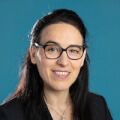Patient-derived organoids: an emerging platform to de-risk immunotherapy development

Recent advances in cancer immunotherapy have had a positive impact on the life expectancy of patients with liquid cancers. With new treatment strategies and druggable targets being identified at an increasing pace, the number of patients eligible for cancer immunotherapy is expected to expand rapidly. However, promising therapeutic developments face hurdles in translating preclinical findings into therapy since conventional 2D cancer models hold low clinical predictive value.
Patient-derived organoids (PDOs) generated from healthy and malignant tissues recapitulate complex characteristics of the original parental tissue, including molecular heterogeneity, morphological and functional traits. Importantly, they preserve tumour-specific antigens that are conventionally lost in standard in vitro models, therefore representing an excellent system to investigate target engagement, mechanisms of action, and to stratify a patient population based on tumour molecular features.
This webinar will spotlight the development of autologous PDO and immune cell biobanks relevant for testing immune-oncology agents and co-culture assays, to evaluate different immuno-oncology products such as CAR-T cells, T cell engagers, and checkpoint inhibitors.
- Learn about the benefits of patient-derived organoids compared to standard in vitro models
- Find out about established co-culture systems and under development projects
- Learn how PDOs are currently being used to evaluate the efficacy of CAR-T cells, T cell engagers and checkpoint inhibitors
- Understand PDO applications across the drug development pipeline, from target engagement/validation to mechanism of action and lead selection studies
- Discover how organoids are helping to replace, refine, and reduce animal use in immunotherapy development
You might also like

Assessing CAR-T cell therapy in vitro using patient-derived glioblastoma organoids

Fit-for-purpose analytical development for an emerging cell therapy landscape

Optimizing iPSC-derived cell therapy development

Development of an automated AAV capsid titer assay on a high-throughput platform



